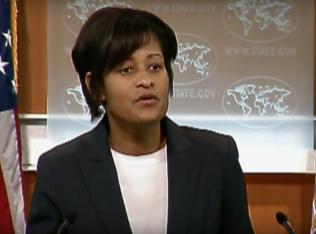
UPDATE: U.S. District Court Judge Emmet G. Sullivan entered his order “granting non-party deponent Cheryl Mills’ Motion to Seal all audiovisual copies of her forthcoming deposition.”
Judge Sullivan wrote:
Rule 26 authorizes the Court to protect “a party or person from annoyance, embarrassment, oppression or undue burden or expense.” Fed. R. Civ. P. 26(c)(1). The depositions permitted by the Court are limited in scope, but relate to former Secretary of State Hillary Clinton’s email practices during her tenure at the State Department. The public has a right to know details related to the creation, purpose and use of the clintonemail.com system. Thus, the transcripts of all depositions taken in this case will be publicly available. It is therefore unnecessary to also make the audiovisual recording of Ms. Mills’ deposition public. To avoid unnecessary briefing by the parties and non-parties going forward, the Court sua sponte orders that all audiovisual copies of depositions taken in this case shall be sealed until further order of the Court. Upon completion of each deposition, the parties shall hand deliver to Judge Sullivan’s chambers two copies of the final deposition transcripts and one audiovisual copy of each deposition. Signed by Judge Emmet G. Sullivan on May 26, 2016. (lcegs4) (Entered: 05/26/2016)
The legal watchdog group Judicial Watch filed its response to a motion to block the release of any audiovisual recording of the deposition of Cheryl Mills, a former top aide to Hillary Clinton.
As LawNewz.com reported earlier on Thursday, Mills is set to testify at a deposition on Friday as part of a civil lawsuit that seeks to determine whether the State Department and Clinton acted in good faith in responding to FOIA requests.
Before she has even testified, Mills’ attorneys filed a pre-emptive motion that asked the judge to prevent Judicial Watch from releasing any audiovisual recordings from her deposition. Her attorneys expressed concern that “snippets or soundbites of the deposition may be publicized in a way that exploits Ms. Mills image and voice in an unfair and misleading manner.”
Judicial Watch fired back in its response on Thursday afternoon. The legal watchdog accused Mills’ lawyers of sandbagging them by waiting to file their motion until less than two full days before the deposition was scheduled to take place. Additionally, they called Mills characterizations of their possible motives “unfair and inaccurate” and described her concerns as “baseless.”
Judicial Watch also stated that the “release of Ms. Mills videotaped deposition will likely shed significant light” on issues of public interest. The group stressed that this is “all about the public’s right to know” why a public official created “an off-grid communications system to conduct official government business.”